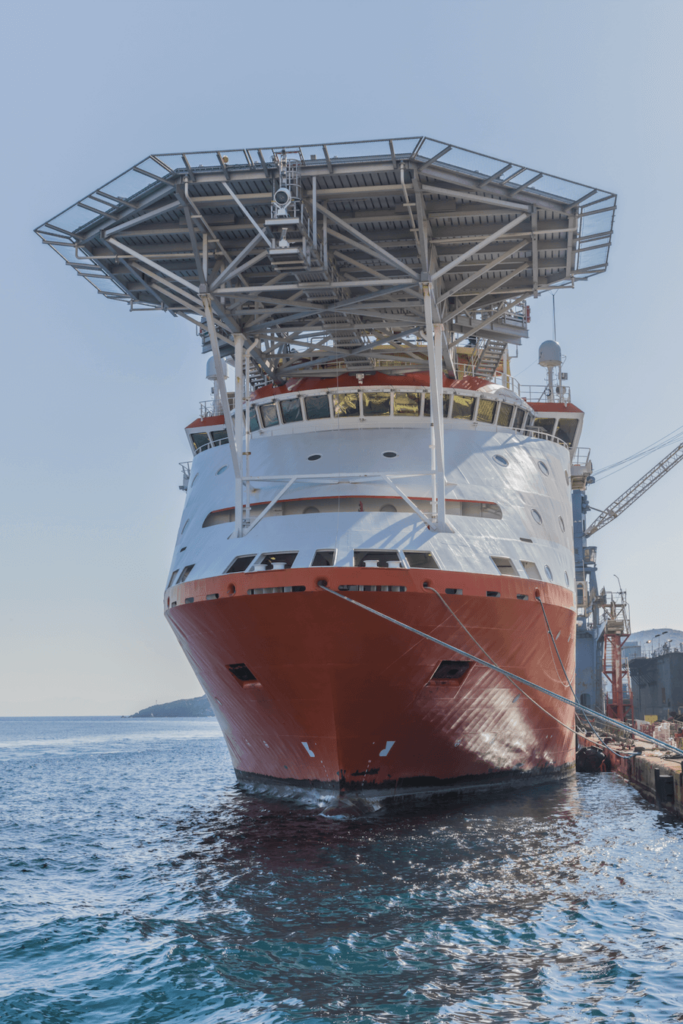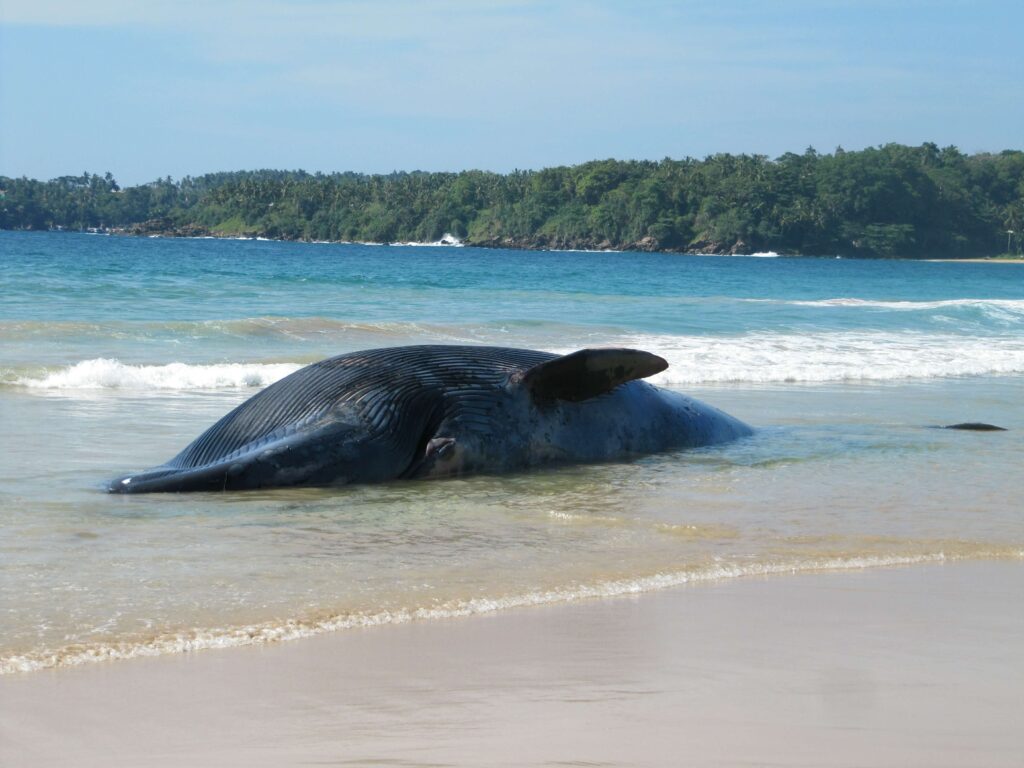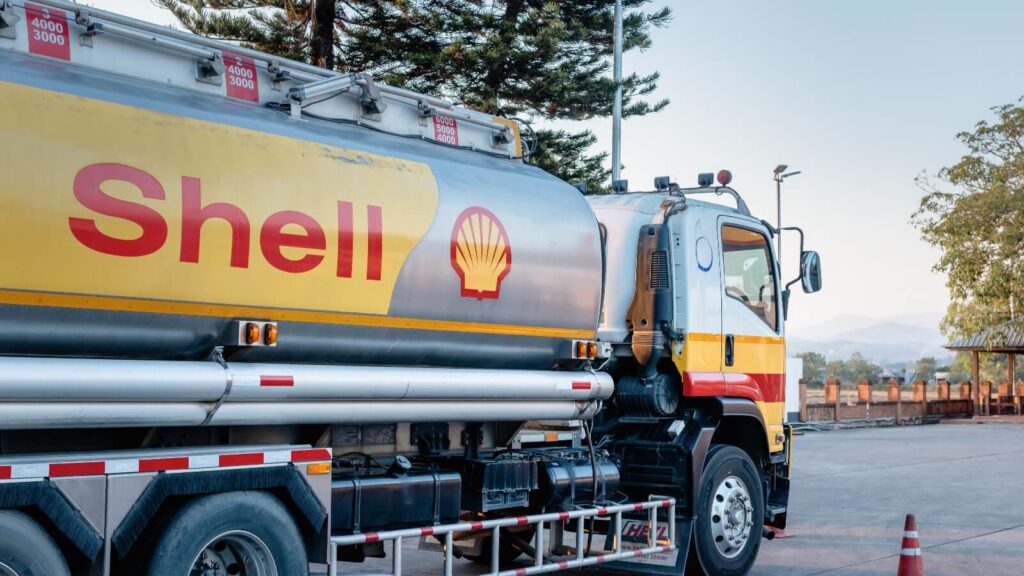Shell’s plans to continue its three-dimensional (3D) seismic survey in South Africa have been thwarted, at least for now.
The multinational oil and gas company began testing in the Eastern Cape at the start of the month.
The news enraged environmentalists, who were concerned that the project would destroy habitats and harm marine animals, including migrating whales.
Following the outcry, a South African court blocked Shell’s seismic testing project. A final ruling is yet to be made.
Shell’s plans
On October 29, 2021, Shell Exploration and Production South Africa placed a notice about the surveying.
In it, the titan oil company said the project would cover an area of around 6,011km2. It would stretch roughly from Port St Johns to Morgans Bay.
The survey wouldn’t get closer than 20km from the shore, it said, and would cover water depths between 700m and 3,000m.
Kicking off on December 1, Shell estimated the project would take four to five months to complete. However, this could change depending on fluctuations of weather and current conditions.
But this week, a ruling by High Court judge Gerald Bloem forced Shell to “pause” its operations. Bloem said the oil giant had not adequately refuted claims that its project was environmentally destructive.
Further, permission for the oil giant to test the area “was awarded on the basis of a substantially flawed consultation process,” Bloem said.
Shell responded: “We respect the court’s decision and have paused the survey while we review the judgement.”
What is a seismic survey?

Seismic surveys are designed to locate subsurface deposits of crude oil, natural gas, and minerals – enough to be commercially viable.
This is done by recording artificially produced shock waves – seismic waves – in the earth.
The seismic waves are created by explosive charges set off in shallow holes. Trucks carrying heavy plates that vibrate into the ground can also be used.
These shock waves penetrate the earth, reflect off subsurface formations, and resurface. They’re then recorded by receivers called geophones.
For 3D seismic surveying, thousands of geophones can be used, and are spread out across the land or water. The geophones record the time it takes for the seismic waves to complete their journey. This allows a geophysicist to develop a 3D image of the subsurface, which can indicate where oil or gas may be.
The energy source is moved to different locations, and the process is repeated. Further, seismic data is licensed and can be sold off to brokers and other companies.
Why is seismic exploration controversial?
Such testing can be extremely harmful to marine life, according to the Center for Biological Diversity. The charity explains that the airguns used can exceed 250 decibels and can be heard for miles.
This can cause temporary or permanent hearing loss in wildlife. It can also disrupt natural behaviors and life cycles like foraging, nursing, and breeding.
Further, seismic surveys can heavily impact animals like whales and dolphins, who rely on sound waves to navigate and communicate.
Moreover, the center adds that such exploration can increase the risk of oil spills and pollution.
Speaking to the Daily Maverick, East London museum scientist Kevin Cole explained: “Marine animals are highly sensitive to acoustic sound. Marine fish and mammals depend on sound for communicating with group members and young, food-finding, reproduction, avoiding predators and hazards, navigation and sensing their environment.”
Additionally, seismic surveys can result in changes in animals’ physiology, which could result in reproductive issues or death, the publication said.

Shell’s seismic surveying in South Africa
Many groups voiced concern about Shell’s project, and its potential impact on the region’s dolphins, whales, seals, penguins, sharks, crabs, and other wildlife.
Coastal Links Eastern Cape chairperson Ntsindiso Nongcavu also spoke to the Daily Maverick about the surveying.
“Our government does not want to listen to the people and ask what kind of a development they need in that area; instead they are being used by businesses,” he said in November. Nongcavu revealed that 34 whales died when the same survey was carried out in Richards Bay.
“We are totally against the drilling of oil and gas in the ocean. What help will this bring to the communities in the area?” he added.
In a similar vein, local campaigner Nonhle Mbuthuma highlighted the importance of the ocean to the community, and celebrated the judge’s recent ruling.
“As coastal communities we have relied on the sea for centuries – and we are glad that the judge has recognized that our ocean livelihoods must not be sacrified for short term profit,” Mbuthuma said to the BBC.
Katherine Robinson of Natural Justice, a human rights and environmental law group, named the ruling a “huge victory.”
But, she noted that the “struggle is not over.” According to AFP, she said: “This decision is just the interdict. We understand that the proceedings will continue.”
Petition
Oceans Not Oil – a South African organization fighting offshore oil and gas exploration – launched a petition about the issue. It’s addressed to Shell and Barbara Creecy, South Africa’s Minister of Environment, Forestry, and Fisheries.
According to the petition, Shell’s “around the clock” operation involves firing air guns every 10 seconds.
In a statement, Oceans Not Oil said: “At a time when world leaders are making promises and decisions to step away from fossil fuels because climate science has shown we cannot burn our existing reserves (let alone drill for more), offshore oil and gas Operation Phakisa is pushing ever harder to get its hands on a local supply of gas.
“Shell must answer for how the harms done during this survey and any exploration drilling done hereafter are part of its energy transition plan to control global warming.”
The petition warned that the project will “panic and damage” marine life. As of December 29, it has garnered more than 441,000 signatures.
The Kiffness, an electronic act from Cape Town, released a song about the issue on Youtube to more than 750,000 subscribers. The song is a rendition of John Lennon’s Imagine, and takes aim at Shell’s negligence.
Fans flocked to the comments to praise the music group for using their platform to raise awareness. “Way to use your talent to speak out for others that don’t have a voice and can’t speak for themselves,” one user wrote.
The Kiffness directed viewers to Oceans Not Oil’s aforementioned petition, which can be found here.
This article was first published on November 10, 2021. It was updated on December 29, 2021, to include the Court’s ruling that forced Shell to pause its operation, as well as new statements from relevant parties.






